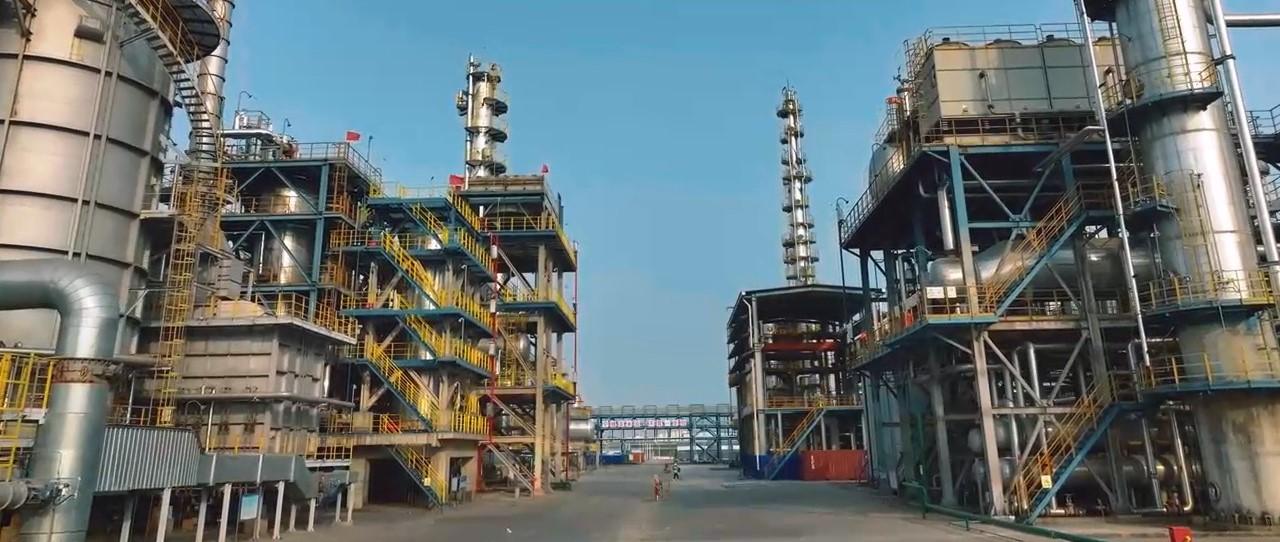Why using Haixin Suspended Bed Hydrogenation
for SAF/SPK production ?
HVO
Fatty acid methyl esters (FAME) biodiesel has served
the industry well for many years as an additive to
petroleum-based diesel. However, it has significant
limitations with respect to blending ratio,
and it cannot be used for jet fuel.
A more viable solution has emerged in the form of
renewable diesel or sustainable aviation fuel (SAF),
produced through hydroprocessing of fossil-free feedstock
or so-called hydrotreated vegetable oil (HVO) processing.
With an optimally designed pretreatment system,
the HVO process can handle a wide variety of feedstocks,
ranging from vegetable, animal or even waste fats and
oils to second-generation feedstocks,
such as pyrolysis or hydro-pyrolysis oils
generated from biomass.
These fuels, Synthetic Paraffinic Kerosen (SPK), are suitable for the preparation of premium
fuel with a high cetane number and excellent
low temperature properties.
Suspended bed catalyst
Existing HVO biorefineries are commonly using fixed bed catalyst
reactors for the hydrogenation process aimed at transforming fatty acids into
paraffin.
The HSBH process developped and industrialised by
HAIXIN
replaces the fixed bed catalyst reactor by
suspended bed reactor
offering multiple advantages with respect to the former approach.
Enhanced Heat and Mass Transfer:
- Improved Mixing: In a suspended bed system, the catalyst is in constant motion, leading to better mixing of the vegetable oil feedstock with hydrogen. This results in more efficient heat and mass transfer compared to fixed bed systems, which is critical for the uniform hydrogenation and deoxygenation of vegetable oils.
- Temperature Control: The fluidized nature of the suspended bed helps in maintaining a uniform temperature throughout the reactor, minimizing the risk of hot spots that could lead to unwanted side reactions or catalyst deactivation.
Continuous Operation and Catalyst Regeneration:
- Continuous Catalyst Activity: Suspended bed systems allow for continuous operation, as the catalyst can be regenerated or replaced without shutting down the reactor. This is particularly beneficial in long-duration processes like SPK production, where maintaining consistent output quality is essential.
- Reduced Downtime: The ability to regenerate the catalyst in situ without halting production reduces downtime and increases overall process efficiency.
Scalability and Flexibility:
- Adjustable Catalyst Loading: Suspended bed systems provide flexibility in adjusting catalyst loading and operating conditions, making it easier to scale up the process or modify it for different feedstocks or product specifications.
- High Throughput: The system can handle higher throughputs, which is advantageous in large-scale SPK production where large volumes of vegetable oil need to be processed.
Handling of Impurities and Catalyst Deactivation:
- Robust Against Feedstock Variability: Suspended bed catalysts are more tolerant to feedstock impurities, which are common in vegetable oils. This tolerance reduces the risk of catalyst deactivation, leading to a longer catalyst life and more stable operation.
- Efficient Catalyst Utilization: Continuous removal of spent catalyst and introduction of fresh catalyst ensures that the most active catalyst is always in use, optimizing the hydrotreatment process.
The advantages of suspended bed catalysts,
including superior mixing, continuous operation,
and flexibility, make them an unparalleled enhancement
for the production of SPK/SAF fuels.
More information :
HX ENERGY LABS.









